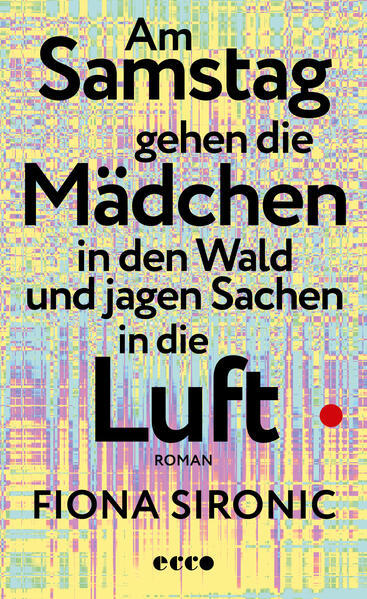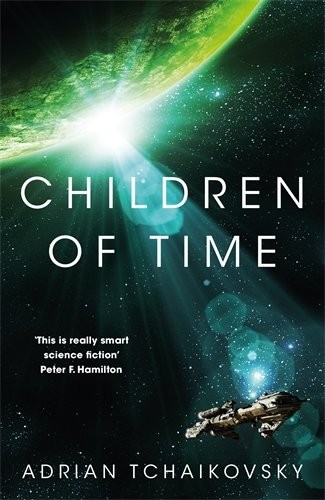After being quite impressed by the film adaptation of »Ein Mann seiner Klasse« (A Man of His Class), which was the book that preceded this one, I indeed wanted to know more about Baron's family. Some scenes from the film have stayed with me for a long time, mainly because of their drastic portrayal of domestic violence and social misery as a product of a certain type of neoliberal politics and ideology in post-war Germany. Above all, I find the very idea of growing up in a family of violent offenders and criminals, as was the case with Baron, to be shocking and fascinating. »Ein Mann seiner Klasse« was based primarily on Baron's own experiences, and he himself plays the protagonist of the story (alongside his parents). »Schön ist die Nacht« (The Night Is Beautiful), the second part of Baron's family trilogy, now tells the story of his grandparents, primarily …
User Profile
This link opens in a pop-up window
staxl's books
User Activity
RSS feed Back
staxl wants to read Checkout 19 by Claire-Louise Bennett

Am Samstag gehen die Mädchen in den Wald und jagen Sachen in die Luft by Fiona Sironic
Eine erste Liebe zwischen Festhalten und Vernichten, Aussterben und Weiterleben
Es brennt. In den Wäldern und auf den Screens. …
staxl wants to read Eyes Are the Best Part by Monika Kim

Eyes Are the Best Part by Monika Kim
“Violent, smart, gruesome and wildly original, this novel pulls readers into a horrific world of murder and cannibalism while also …
staxl wants to read Model Home by Rivers Solomon

Model Home by Rivers Solomon
The three Maxwell siblings keep their distance from the lily-white gated enclave outside Dallas where they grew up. When their …
staxl wants to read In the Blink of an Eye by Walter Murch
staxl wants to read Schattenfroh ein Requiem by Michael Lentz
staxl wants to read Children of Time by Adrian Tchaikovsky (Children of Time, #1)

Children of Time by Adrian Tchaikovsky (Children of Time, #1)
A race for survival among the stars... Humanity's last survivors escaped earth's ruins to find a new home. But when …
staxl wants to read The Future of Another Timeline by Annalee Newitz (duplicate)

The Future of Another Timeline by Annalee Newitz (duplicate), Annalee Newitz
"1992: After a confrontation at a riot grrl concert, seventeen-year-old Beth finds herself in a car with her friend's abusive …
staxl started reading Die Geschichte der Don Quixote by Kathy Acker
staxl wants to read The Penultimate Truth by Philip K. Dick (Sf Masterworks)

The Penultimate Truth by Philip K. Dick (Sf Masterworks)
The Penultimate Truth is a 1964 science fiction novel by American writer Philip K. Dick. The story is set in …
staxl reviewed Schön ist die Nacht by Christian Baron
Das Dröhnen und die Herrlichkeit, die Bürde und die Notwendigkeit des Lebens der „einfachen Leute“
…Christian Baron: Schön ist die Nacht (2022)
3 stars
After being quite impressed by the film adaptation of »Ein Mann seiner Klasse« (A Man of His Class), which was the book that preceded this one, I indeed wanted to know more about Baron's family. Some scenes from the film have stayed with me for a long time, mainly because of their drastic portrayal of domestic violence and social misery as a product of a certain type of neoliberal politics and ideology in post-war Germany. Above all, I find the very idea of growing up in a family of violent offenders and criminals, as was the case with Baron, to be shocking and fascinating. »Ein Mann seiner Klasse« was based primarily on Baron's own experiences, and he himself plays the protagonist of the story (alongside his parents). »Schön ist die Nacht« (The Night Is Beautiful), the second part of Baron's family trilogy, now tells the story of his grandparents, primarily his grandfathers Horst and Willy, who meet for the first time in a German city bombed as a result of World War II towards the end of the war and who, against all odds, form a friendship that lasts for decades. Both come from a very precarious working-class background in Kaiserslautern. Willy is portrayed as a character who tries to secure a down-to-earth existence through hard work and honest means, while Horst has given up his belief in social advancement through work and moral living and often engages in petty crime, repeatedly involving Willy in his schemes. It takes years for Willy to break away from his friend Horst and distance himself from him.
Even though Annie Ernaux has become so popular here in recent years, which in my opinion had this genre of intergenerational family history novels bacome very common, I find the way in which he deals with her own family history in this book very respectable and impressive. Even if some of the characters come across as somewhat stereotypical, the dynamic between the two main characters in particular is portrayed in a thoroughly engaging way.
However, the style and language of the novel are debatable. There are clear references to Neue Sachlichkeit, and indeed, the introspective perspective taken in the novel is somewhat engaging. For long stretches, the book is written from the perspective of Horst or Willy, albeit in the third person. This also means that there is no distance between the narrator and the respective character. The reader is somehow defenselessly exposed to the inner world of the two characters and all too often confronted with problematic moral attitudes and ideas. As I said, this is captivating, but also difficult to bear: on the one hand because of the negativity and wrongness expressed in the inner lives of the two protagonists, and on the other hand because of the monotony that this brings to the reading experience. Perhaps this is actually a matter of taste, and there may be readers who are enthusiastic about this narrative and linguistic style. Be that as it may, this style leaves a lot up to the reader and does not clearly delineate the ideological stance of its author. The dissonance created by this uncertainty is one of the strengths of the book, but at the same time it can be misinterpreted as affirmation. All too often, one feels sympathy for the two men, and I cannot shake the impression that Baron also fetishizes his family's working-class biographies in a certain way.
One of the book's concerns seems to be to show that certain forms of subjectification are a consequence of political circumstances and the lack of focus in German politics or in the capitalist world on low-income earners and »the little man.« For example, the development of the character Horst into a criminal and violent person, his lack of foresight, and his constant focus on his own advantage rather than fairness or morality are apparently explained by the fact that for him, pursuing a normal job and living according to the rules set by the state has not paid off. Baron thus portrays Horst as a victim of his circumstances. It is roughly the same argument as that used to explain the growing support for the AfD: citizens would not vote for the party if politicians really took care of their concerns and pursued social and fair policies. This is true, and it is certainly worthwhile to take this sociological view of German society and the mood within it. However, this view becomes problematic when it slips into apologetics, which I believe is what happens to some extent with Baron.
Admittedly, there are also characters in the book with opposing views who essentially counter the two men. These include Willy's communist mother Hulda and the opera-trained Turkish and Italian guest workers in his company. However, these opposing positions are given little space, and the left-wing political content discussed there is limited to entry-level Marxism that is not really convincing, but rather clichéd; for example, when Hulda drills the most obvious of all Marx quotes, »Being determines consciousness,« into her granddaughter, or when the guest workers say that they became aware of their power as workers during the strikes at the Fiat factories.
Even though the book raises many questions and points of contention regarding class relations, exploitation, forms of subjectification, etc., I fear that Baron's presumed goal—to call for social change—is somehow missed due to the lack of alternative concepts and demarcation.
staxl started reading The Illuminatus! Trilogy by Robert Anton Wilson

The Illuminatus! Trilogy by Robert Anton Wilson, Robert Shea
The Illuminatus! Trilogy is a series of three novels by American writers Robert Shea and Robert Anton Wilson, first published …






